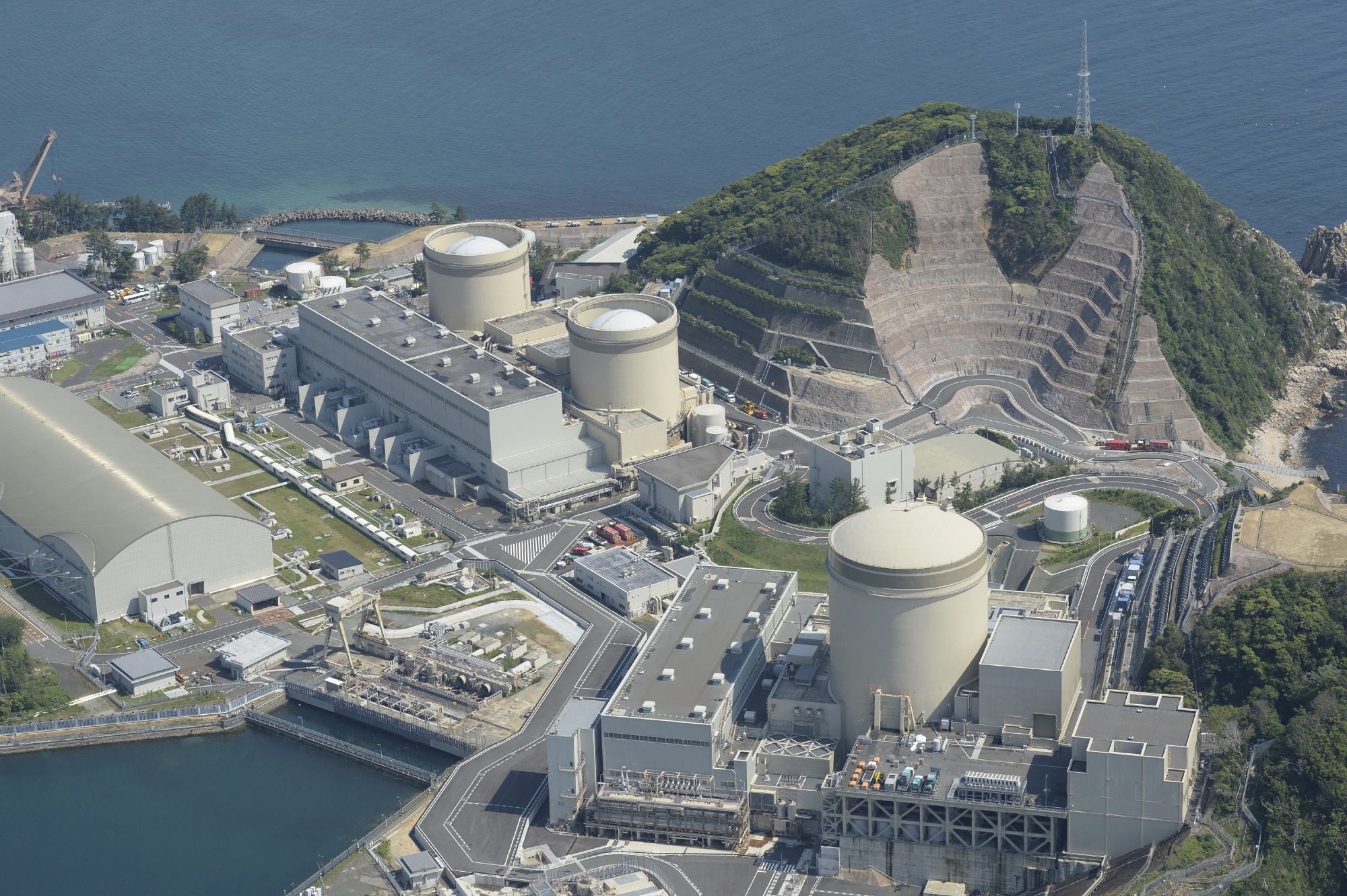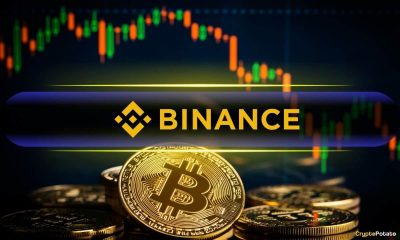Economy
Nikkei learns of plans to build next-generation Japan NPP

Prime Minister Fumio Kishida will order the preparation of a construction project at the Japan NPP at a government meeting on August 24, Nikkei wrote, citing its own sources.
Kishida believes the move will help reduce carbon emissions – Japanese authorities want to bring them down to zero by 2050. Also, the measure will increase electricity production, and avoid the risk of its deficit, writes the edition.
Specific steps in this direction and timing of the project the government will submit by the end of the year. In total, starting from the summer of 2023, the authorities intend to restart 17 Japanese nuclear power plants. But as early as 2030, if the government approves the initiative, Japan could start building a new generation of nuclear power plants. The Ministry of Economy, Trade and Industry of Japan has already prepared the first draft of these facilities; it envisages, in particular, safer light-water reactors. The plants will not start to be used until the 2030s.
The decision is a turning point for the Japanese energy industry, because in 2011, after the Fukushima accident, Japan banned the construction of new plants and focused on restarting old ones.
Also, Kishida will try to prolong the life of existing Japanese nuclear power plants and individual reactors, according to the publication. Currently, under Japanese law, they are operated for 40 to 60 years, then the reactors are deactivated. Japan has a total of 33 nuclear reactors, 25 of which are inactive. Some of them have already been tested for safety to be restarted.
The authorities want to restart ten reactors, and by next summer to increase their number to 17.
In early July, Japanese authorities introduced the first power-saving regime for the population in seven years amid increasing consumption due to the record heat wave, while the volume of supplies did not increase. At the same time, Kyodo agency wrote that the risk of power shortages was posed by the aging of thermal power plants and the threat to fuel purchases for their operation due to the events in Ukraine.
In mid-May, The Financial Times wrote that the energy crisis in Japan began because of rising gas and oil prices. At the same time, Tokyo buys about 9% of its LNG from Russia, so sanctions in this context would cause an increase in electricity prices. At the same time, Japan buys about 55% of its uranium for use in nuclear power plants from Western European countries. Akihiko Kato, head of Mitsubishi Heavy Industry’s core business unit, saw the resumption of operation of the shutdown nuclear power plants as an opportunity to reduce dependence on Russian energy resources.
Earlier, we reported that Goldman Sachs analysts reported that their expectations were not met.
Economy
Russian central bank says it needs months to make sure CPI falling before rate cuts -RBC


© Reuters. Russian Central Bank Governor Elvira Nabiullina attends a news conference in Moscow, Russia June 14, 2019. REUTERS/Shamil Zhumatov/File Photo
MOSCOW (Reuters) – Russia’s central bank will need two to three months to make sure that inflation is steadily declining before taking any decision on interest rate cuts, the bank’s governor Elvira Nabiullina told RBC media on Sunday.
The central bank raised its key interest rate by 100 basis points to 16% earlier in December, hiking for the fifth consecutive meeting in response to stubborn inflation, and suggested that its tightening cycle was nearly over.
Nabiullina said it was not yet clear when exactly the regulator would start cutting rates, however.
“We really need to make sure that inflation is steadily decreasing, that these are not one-off factors that can affect the rate of price growth in a particular month,” she said.
Nabiullina said the bank was taking into account a wide range of indicators but primarily those that “characterize the stability of inflation”.
“This will take two or three months or more – it depends on how much the wide range of indicators that characterize sustainable inflation declines,” she said.
The bank will next convene to set its benchmark rate on Feb. 16.
The governor also said the bank should have started monetary policy tightening earlier than in July, when it embarked on the rate-hiking cycle.
Economy
China identifies second set of projects in $140 billion spending plan


© Reuters. FILE PHOTO: Workers walk past an under-construction area with completed office towers in the background, in Shenzhen’s Qianhai new district, Guangdong province, China August 25, 2023. REUTERS/David Kirton/File Photo
SHANGHAI (Reuters) – China’s top planning body said on Saturday it had identified a second batch of public investment projects, including flood control and disaster relief programmes, under a bond issuance and investment plan announced in October to boost the economy.
With the latest tranche, China has now earmarked more than 800 billion yuan of its 1 trillion yuan ($140 billion) in additional government bond issuance in the fourth quarter, as it focuses on fiscal steps to shore up the flagging economy.
The National Development and Reform Commission (NDRC) said in a statement on Saturday it had identified 9,600 projects with planned investment of more than 560 billion yuan.
China’s economy, the world’s second largest, is struggling to regain its footing post-COVID-19 as policymakers grapple with tepid consumer demand, weak exports, falling foreign investment and a deepening real estate crisis.
The 1 trillion yuan in additional bond issuance will widen China’s 2023 budget deficit ratio to around 3.8 percent from 3 percent, the state-run Xinhua news agency has said.
“Construction of the projects will improve China’s flood control system, emergency response mechanism and disaster relief capabilities, and better protect people’s lives and property, so it is very significant,” the NDRC said.
The agency said it will coordinate with other government bodies to make sure that funds are allocated speedily for investment and that high standards of quality are maintained in project construction.
($1 = 7.1315 renminbi)
Economy
Russian central bank says it needs months to make sure CPI falling before rate cuts -RBC


© Reuters. Russian Central Bank Governor Elvira Nabiullina attends a news conference in Moscow, Russia June 14, 2019. REUTERS/Shamil Zhumatov/File Photo
MOSCOW (Reuters) – Russia’s central bank will need two to three months to make sure that inflation is steadily declining before taking any decision on interest rate cuts, the bank’s governor Elvira Nabiullina told RBC media on Sunday.
The central bank raised its key interest rate by 100 basis points to 16% earlier in December, hiking for the fifth consecutive meeting in response to stubborn inflation, and suggested that its tightening cycle was nearly over.
Nabiullina said it was not yet clear when exactly the regulator would start cutting rates, however.
“We really need to make sure that inflation is steadily decreasing, that these are not one-off factors that can affect the rate of price growth in a particular month,” she said.
Nabiullina said the bank was taking into account a wide range of indicators but primarily those that “characterize the stability of inflation”.
“This will take two or three months or more – it depends on how much the wide range of indicators that characterize sustainable inflation declines,” she said.
The bank will next convene to set its benchmark rate on Feb. 16.
The governor also said the bank should have started monetary policy tightening earlier than in July, when it embarked on the rate-hiking cycle.

 Forex3 years ago
Forex3 years agoForex Today: the dollar is gaining strength amid gloomy sentiment at the start of the Fed’s week

 Forex3 years ago
Forex3 years agoUnbiased review of Pocket Option broker

 Forex3 years ago
Forex3 years agoDollar to pound sterling exchange rate today: Pound plummeted to its lowest since 1985

 Forex3 years ago
Forex3 years agoHow is the Australian dollar doing today?

 Cryptocurrency3 years ago
Cryptocurrency3 years agoWhat happened in the crypto market – current events today

 World3 years ago
World3 years agoWhy are modern video games an art form?

 Commodities3 years ago
Commodities3 years agoCopper continues to fall in price on expectations of lower demand in China

 Economy3 years ago
Economy3 years agoCrude oil tankers double in price due to EU anti-Russian sanctions























